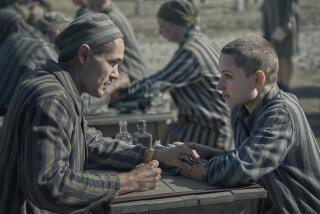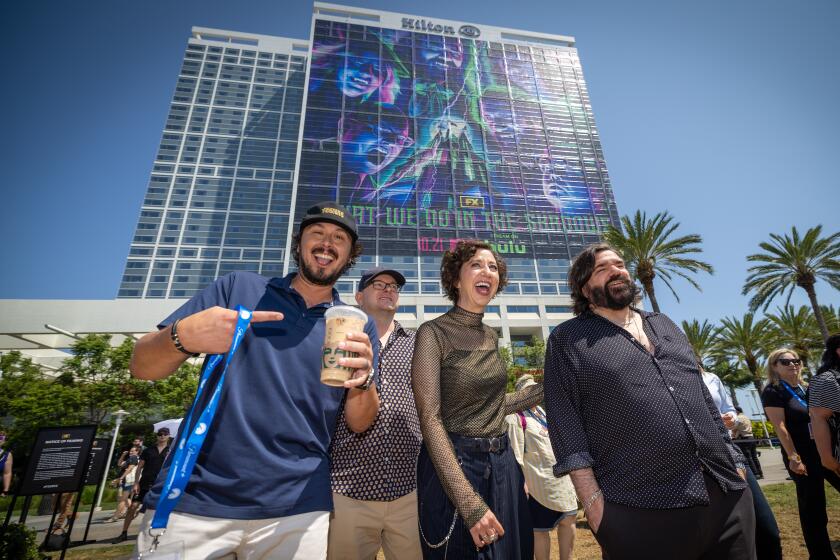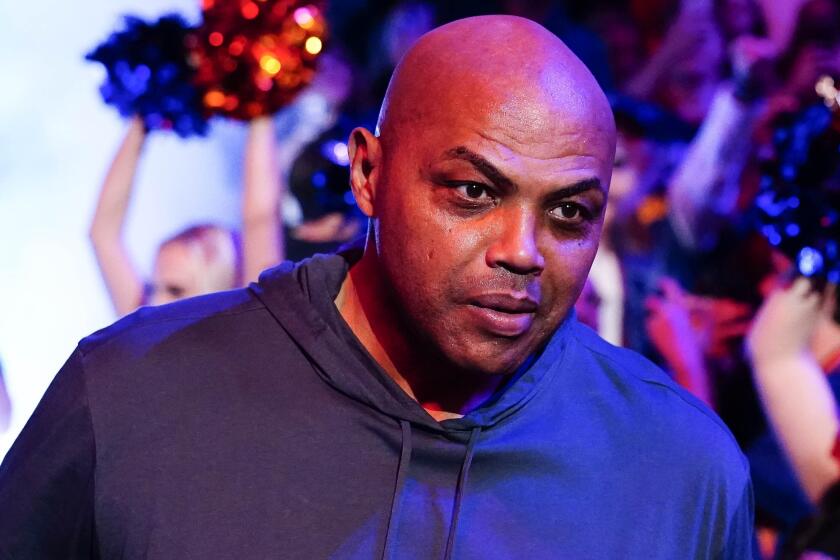HBO’s ‘Night Will Fall’ chronicles making of WWII Holocaust film
Seventy years ago, British, Soviet and American forces were unprepared for the atrocities they encountered when they liberated the Nazi concentration camps. Combat and newsreel cameramen recorded these harrowing discoveries at camps that included Bergen-Belsen, Dachau and Auschwitz.
In April 1945, the footage was to be turned into a film, “German Concentration Camps Factual Survey,” and was supposed to be screened in Germany after the collapse of the Third Reich.
Despite having Alfred Hitchcock as a supervising director, the 1945 film was never completed. In 1952, London’s Imperial War Museum inherited the rough cut of five of the six planned reels of the film, as well as 100 compilation reels of unedited footage, a script for voice-over commentary, and a detailed shot list for the completed film.
“Night Will Fall,” a new HBO documentary airing Monday on the cable network and then repeating on HBO2 on International Holocaust Remembrance Day on Tuesday, chronicles the making of “German Concentration Camps Factual Survey.” The actual 1945 documentary, which has been restored and assembled by London’s Imperial War Museum, will also screen Tuesday at the Museum of Tolerance in Los Angeles.
Narrated by Helena Bonham Carter, “Night Will Fall” features restored raw footage as well as discussions with the soldiers who liberated the camp, the men who shot the footage and Holocaust survivors including Mania Salinger, author of “Looking Back.”
Salinger, who was in five camps during World War II, was in Bergen-Belsen — starving and ill — when the Allies arrived
“It was a camp where you wait to die, but I lived,” said Salinger, 90, over the phone from her home in Bloomington, Minn. (Salinger married a Jewish American GI she met in Germany.)
She recalled noticing early one morning that the “watch tower was empty. There were no Germans. Then I ventured a few steps, and I saw another watch tower and looked around, and there were no Germans on site. I started screaming and running.”
“Night Will Fall” director André Singer was brought into the project by producer Sally Angel, who was working at the Imperial War Museum and knew of the restoration work on the 1945 documentary.
“This was not only an extraordinarily gripping story but was potentially important in bringing a different perspective to the story of the Holocaust,” Singer said in an email interview. “Once I watched ‘German Concentration Camps Factual Survey,’ I knew we could make something both different and importantly powerful.”
Although the five-reel rough cut had screened at the 1984 Berlin Film Festival and later aired on PBS’ “Frontline,” the digitized version transformed the grainy past into a vivid present, Singer said.
“It was both visceral and twice as shocking,” he added. “I don’t think those images will ever leave me.”
Reports from the concentration camps quickly made their way to Britain and North America in 1945. Sidney Bernstein of the British government’s Ministry of Information went to Bergen-Belsen a week after the liberation to see the conditions for himself.
“He then determined to make a film both to show the German people what had been done in their name under the Third Reich and also to make sure visual evidence was made that could be used in war trials they knew would follow once the war was over,” Singer said. “The American and British governments gave the go-head, and he assembled a team in London to gather the footage and start the process of creating a film.”
Bernstein got his good friend Hitchcock involved. Once the Master of Suspense was free from his Hollywood commitments, Singer said, “he helped the editors and script writers with the final structure of the film by giving advice about the use of camera shots and graphics. He was reported as having been horrified by what he saw. He rarely mentioned [the documentary] in the years after the war.”
After the war ended in Europe in May, Singer said, “government priorities shifted [in Britain]. What seemed like a good idea in 1945 became a problem by June and July.”
The British needed the German people to “pick up the pieces and help energize the destroyed Germany economy. They didn’t want to demoralize the people further by rubbing in their guilt, and the ‘German Concentration Camps Factual Survey’ would not have helped restore confidence,” Singer said.
There was also a concern, Singer added, that “it would provoke most sympathy for the Jewish refugees still in the camps after the war [who] wanted to go to Palestine. The British were having problems with nascent Zionism and felt the film would be unhelpful.”
-------------------
‘Night Will Fall’
Where: HBO
When: 9 p.m. Monday
Rating: Not rated
More to Read
The complete guide to home viewing
Get Screen Gab for everything about the TV shows and streaming movies everyone’s talking about.
You may occasionally receive promotional content from the Los Angeles Times.







